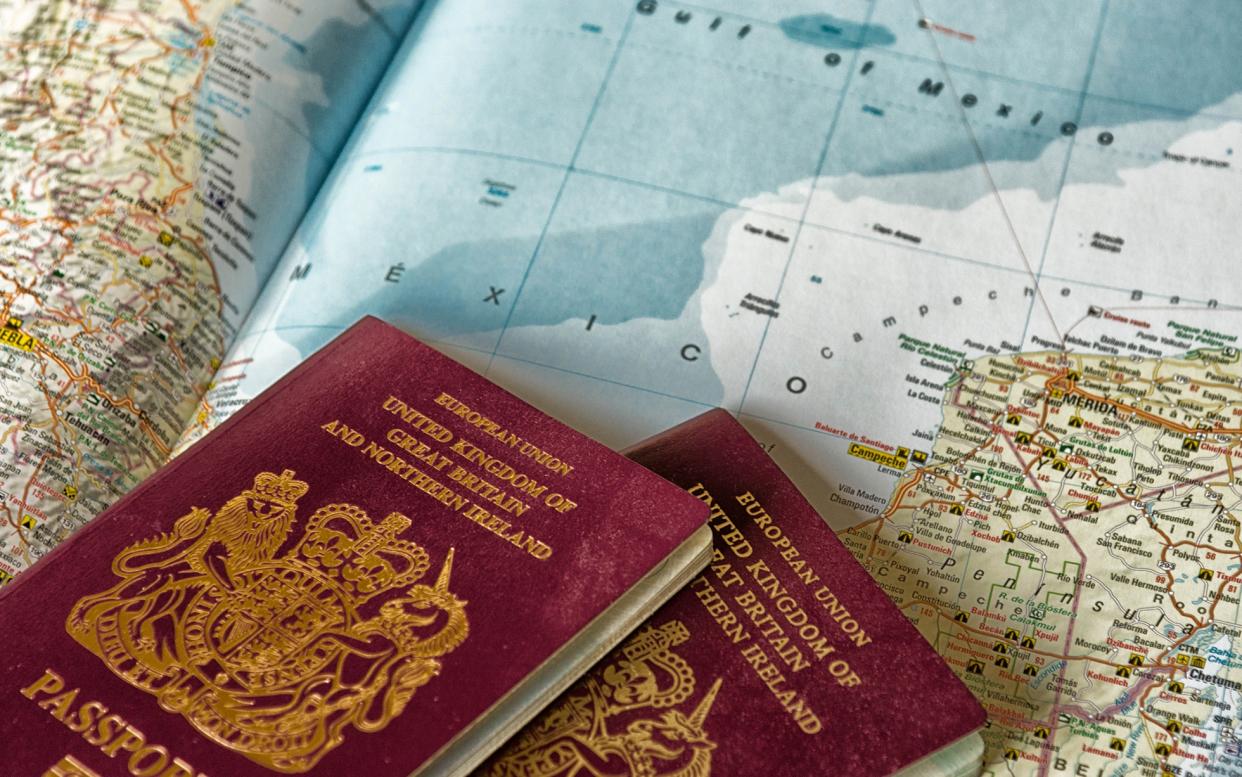Britons 'duped' by new passport renewal policy

The Government has been accused of short-changing millions of British travellers with an unannounced change to its passport renewal policy.
Until this month a Briton renewing their passport would have had any time left over on their old document, up to a maximum of nine months, added to their new one. Someone whose passport expires on March 1, 2019, for example, would have been able to renew today and still be handed a fresh document valid until March 1, 2029. Now, however, a new passport issued to them today will only be valid until September 13, 2028.
The change may encourage travellers to renew at the last minute to get full value from their £85 fee. But that’s a risky strategy as many countries, including Sri Lanka, Thailand, China, Russia, Indonesia and the UAE, only accept passports with at least six months left to run. It means for many Britons the life of their passport has been cut from 10 to less than nine and a half years, equating to a five per cent increase in price.
The change, implemented on September 10 but not announced by the Home Office, was revealed yesterday by Money Saving Expert. It was contacted by shocked readers who had renewed their passports in the last couple of days but lost the time they had remaining.
“To have done this without giving anyone any notice isn’t right and isn’t fair,” said Martin Lewis, the company’s founder.
“It’s really not the way that governments should be operating on something as important as your passport. People are going to feel somewhat duped by this.”
A Home Office statement said the change was made to bring the UK in line with other countries. “Previously, the UK was the only country to exceed the International Civil Aviation Organisation’s guidelines for a maximum passport validity of ten years for adults, and five years for children,” it said. “The price paid for a UK passport has never reflected the validity of that passport, rather it is based on the cost of processing the application.”
The change comes just six months after the cost of a postal passport application rose from £72.50 to £85 – a 17 per cent increase and well above the rate of inflation. For under 16s the cost is £58.50 (up from £46 before March, a 27 per cent increase). Online applications cost £75 and £49 for adults and children, respectively.
More passport problems to watch out for
Dozens of countries around the world require arriving travellers to have at least six months left to run on their passports. They include Brazil, Turkey, China, Russia, St Lucia and Thailand (see table above for more).
Many more, such as Belarus, may refuse entry unless you have at least three months of validity beyond your arrival date. For others, like New Zealand and South Africa, one month is necessary. Always check the Foreign Office’s country-by-country advice as soon as you book.
Every country, even those in the EU, require your passport to be valid for the duration of your trip.
Some countries may also turn travellers away if they do not have any blank pages in their passport. The Foreign Office advises travellers without at least two blank pages to renew their document.
Other entry requirements that may catch you out
South Africa requests that parents travelling with a child under the age of 18 produce at the check-in desk the child’s full unabridged birth certificate showing the names of both parents. Lone adults flying with their offspring must also show they have the consent of their non-travelling partner in the form of a signed affidavit. The rules were introduced in 2015 to combat child trafficking.
A parent travelling to any country who has a different surname to their child should expect to be questioned by border staff to establish their relationship to the youngster.
Travellers to the US must apply for an “ESTA” (Electronic System for Travel Authorization), at a cost of $4, which gives you permission to visit. You cannot board a flight without it. See the official website at esta.cbp.dhs.gov. Do not use any unofficial sites which claim to do the work for you.
The US also requires anyone who has visited Libya, Iran, Iraq, Somalia, Sudan, Syria or Yemen since March 2011 to apply for a full tourist visa. It currently costs $160 and requires applicants to complete an online form and attend an interview at the US Embassy in London.
An Israeli stamp in your passport has long been known to cause problems visiting a number of Muslim countries, such as Syria, Lebanon, Libya, Kuwait, Iran, Iraq, Saudi Arabia, Sudan and Yemen. Israeli authorities, however, typically do not stamp passports but instead give travellers arriving by air a stamped entry and exit card.
Britons can visit most countries without applying for a visa, but not China, Iran, Cuba, Mongolia and Nigeria (among others). Always check the Foreign Office website as soon as you book your trip.

